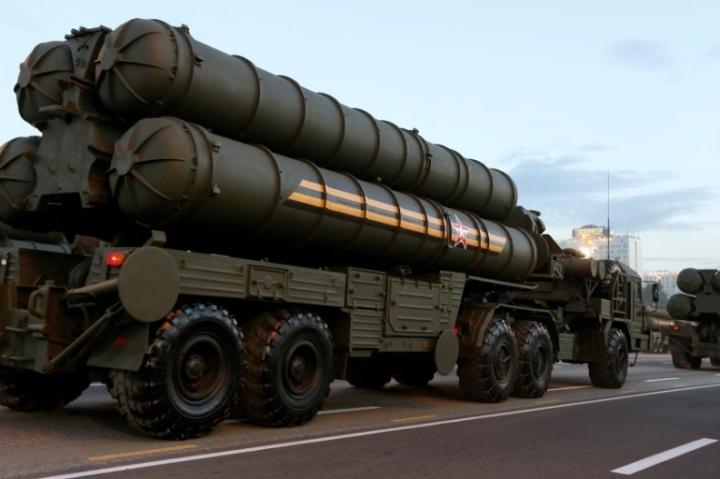The Russian S-400 air defense system has emerged as a serious concern for US policymakers. Amongst other states, US allies are seen purchasing and acquiring this state-of-the-art technology despite Washington’s objections. Earlier in 2019, Turkey received the S-400 setting aside American concerns. India, a critical strategic partner of the US, also secured a $5.4 billion deal for the system in 2018 despite US opposition.
The US administration was considerably confident that it would succeed in persuading India to abandon the deal. The Indian government was warned by the Trump administration that the purchase of S-400 may invoke sanctions under the ‘Countering America’s Adversaries through Sanctions Act’ (CAATSA). It was also communicated to the Indian government that presence of Russian S-400 is likely to increase the vulnerability of American weaponry stationed in India which could limit the extent of US-India cooperation. The threat was largely ignored and India went ahead to pay an advance of $800 million to Russia for the system which is indicative of India’s desire to maintain strategic autonomy and its reluctance to form an official military alliance with USA.
When President Biden took office in January 2021, efforts were made once again to convince India to let go of the deal. Then-Defense Secretary Lloyd Austin III discussed the air defense system with Rajnath Singh during his visit to India in March 2021. However, India showed no willingness to change its stance over its S-400 policy.
The issue was also discussed during the three day visit of US Deputy Secretary of State Wendy Sherman on 6th October, 2021. She commented that the decision over the sanctions related to S-400 will be made by the US President and Secretary of State Antony Blinken. She further added that the US policy regarding any country that uses S-400 is considerably evident and the air defense system is not in anybody’s security interest.
Historically, Indian air defense systems have largely comprised of Russian equipment and the Indian Air Force (IAF) predominantly operates Russian systems. India is unlikely to recede to American demands of abandoning the S-400 deal which is evident from the recent statements of two senior Indian officials. While addressing the Indian media on the 89th anniversary of IAF on 8th October, 2021, Air Chief Marshal VR Chaudhari stressed that the S-400 should be inducted during the same year. Similarly, shortly after Wendy Sherman commented on S-400, the Indian Ministry of External Affairs Spokesperson gave a statement suggesting that the government was in negotiations with the US. Responding to a question on the S-400, Arindam Bagchi stated, ‘This has been under discussion between our two countries for some time. It was raised and we have discussed it and explained our perspective. And discussions on this are ongoing.’
Noting that India may receive the systems by the end of year, the US will soon be in a position where it will have to make a decision over whether to sanction India or not. The Indian attitude towards this issue suggests that it sees itself in a position where it can get a waiver by the US administration despite disregarding the latter’s concerns. Sanctioning India will erode the bilateral relationship of India and US at a time when Washington needs New Delhi in its larger objective of containing China. This is especially relevant since India is the only QUAD member which shares a border with China. Therefore, this option is not in American interest taking into account the current geopolitical situation.
The US President has the authority to waive off CAATSA sanctions if deemed necessary for American strategic interests. However, in February 2021, US openly declared that a blanket waiver was not a possibility for India. The rationale behind not providing a blanket waiver is that such an action can motivate other states to opt for the same in the hope of a potential waiver since countries such as Saudi Arabia and Qatar have shown interest in acquiring the S-400 air defense system. This factor will also be taken into account while devising the sanctions.
It is likely that India may be sanctioned under CAATSA but the sanctions will largely be symbolic with little long-term implications. However, the Indian policy of strategic autonomy raises questions on the extent of the envisaged partnership between India and the US. Increasing dependence and use of Russian equipment will become a concern owing to the interoperability problems vis-à-vis US military systems. The role of India as an effective strategic ally against China is also questionable noting its strategic decisions which will harm American interests in the region.
As a strategic partner, India has placed the American leadership in a difficult situation by purchasing the S-400 system. It will be interesting to see how the US articulates the sanctions against India over this purchase.
Shaza Arif is a Researcher at the Centre for Aerospace & Security Studies (CASS), Islamabad, Pakistan. The article was first published in Modern diplomacy. She can be reached at cass.thinkers@gmail.com
Image Source: Russia and India ‘set to sign $5bn S-400 missile deal. Al – Jazeera. 2 Oct 2018. https://www.aljazeera.com/news/2018/10/2/russia-and-india-set-to-sign-5bn-s-400-missile-deal




